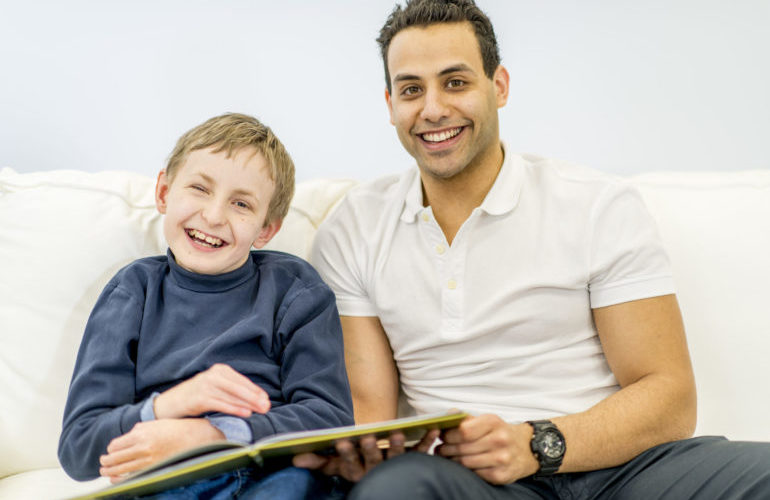Ministry to “special needs” kids is a big, big topic in the world of children’s ministry. If your ministry focus is grade-school kids, you can find dozens of books, workshops, magazine articles, and digital resources to help you come alongside the developmentally disabled. But there’s a “glass ceiling” once you move it up a notch into youth ministry—the conversation seems muted, at best.
So one day, our publishing team at Group was considering a book proposal from a youth worker who’s written a guide to ministering to special-needs adolescents. We liked his book, but we couldn’t agree on how broadly its appeal would be for the average youth worker. We talk with youth pastors all over the world, all the time, and we don’t often hear about ministry to special-needs students. So we asked our team of youth ministry advisors to “peg” how big this issue is for them in their ministries.
And we discovered a sleeping giant in youth ministry—addressing the needs of special-needs kids is a much, much bigger issue than the public conversation in youth ministry would indicate. Here’s how two veteran youth workers are leaning into a major, but under-emphasized, challenge…
Ministering to Teenagers With Special Needs
1. Be on their team.
Liz Simmonds—We currently have special-needs students all along the spectrum—ADHD, ODD, Selective Mutism, processing disorders, speech disorders, FAS, anxiety, vision issues, muscular issues, hearing issues, and depression. The key is to educate yourself—understanding how these students think and process information will help you in ministry. The student and his or her parents are your best resource! I have parents who can tell me what cues their student needs to refocus. They also know what classroom management styles will help their student succeed.
I had a junior high student who wore hearing aids. He finally told me that the soundtrack we ran to create atmosphere in the room made it nearly impossible to hear what people were saying. When the first student with autism came into my ministry, I checked out every book on ASD/Asperger’s from the local library. From there, I pursued learning about Oppositional Defiant Disorder (ODD), then Fetal Alcohol Syndrome (FAS), and then Selective Mutism.
For students with disabilities, and their parents, the biggest thing we can do is let them know we’re on their team. Are we willing to do the work necessary to reach their kid? Are we willing to go above and beyond the job description to meet their needs? Sure, our job is to stretch ALL kids, but not all students can be held to the same standards of behavior or processing. That’s the rub—AND the opportunity!
Individualize their experience.
Yes, one ASD student “gets” to have his iPad out to doodle when no one else does—but he’s likely paying better attention because of it. And one student who has texture issues doesn’t eat what’s offered at the retreat dining hall. Instead, he “gets” to eat a sleeve of Ritz crackers for lunch. We aren’t going to “fix” something like this on a weekend retreat when his parents have been working on it for years.
Ministering to students with special needs and their families is an opportunity for the Kingdom. If our mindset is that it’s a problem or a bother, these kids will sense it and they will leave. But if we dive into this challenge we can make a huge difference. I know a former youth minister who now works for a non-profit. He organized a special-needs camp for parents and teenagers. In the history of his church, it’s considered one of the high-water marks because they were able to make a profound impact on so many special-needs kids and their families.
2. Pair up teens.
Phil Bell—So often children’s ministries do a good job with this, but student ministries can easily overlook it. We have two programs in place that have really made us a church that families with special-needs kids want to attend. First, we have our One2One ministry. One2One pairs an adult or student with a special-needs child or teenager when they come. Second, we have a Sunday morning environment where special-needs students have their space to learn from two main teachers. Plus each of them also has a One2One high school peer working with them. Right now we have about 10 high schoolers in that environment. It’s been amazing to see these kids grow!


Thank you for helping youth leaders understand the needs of special students.